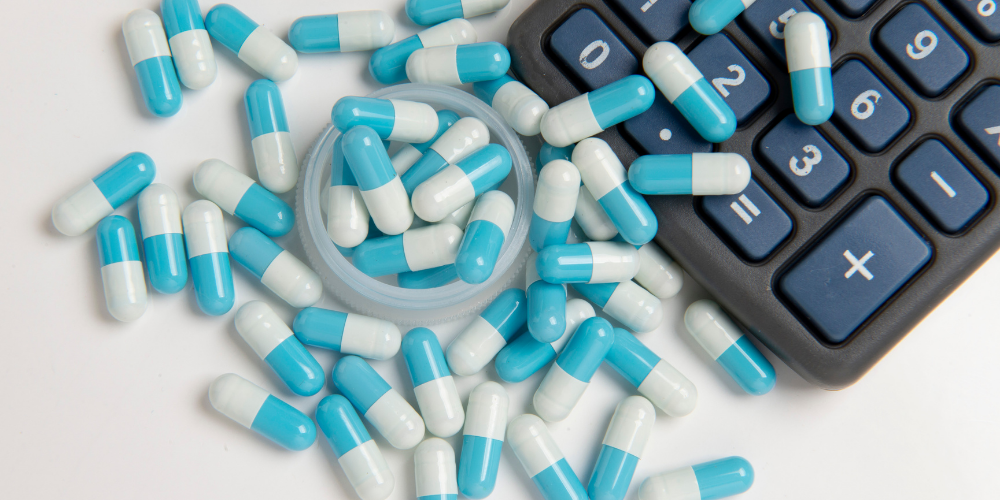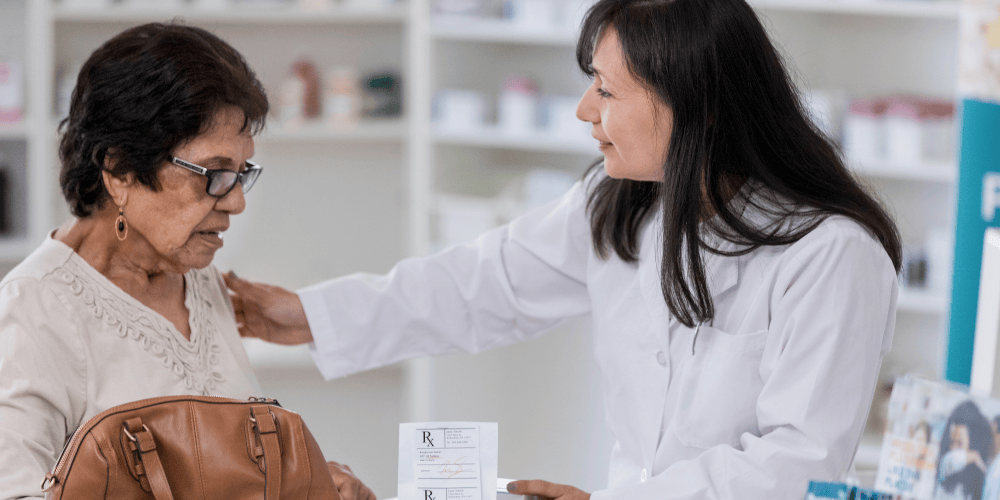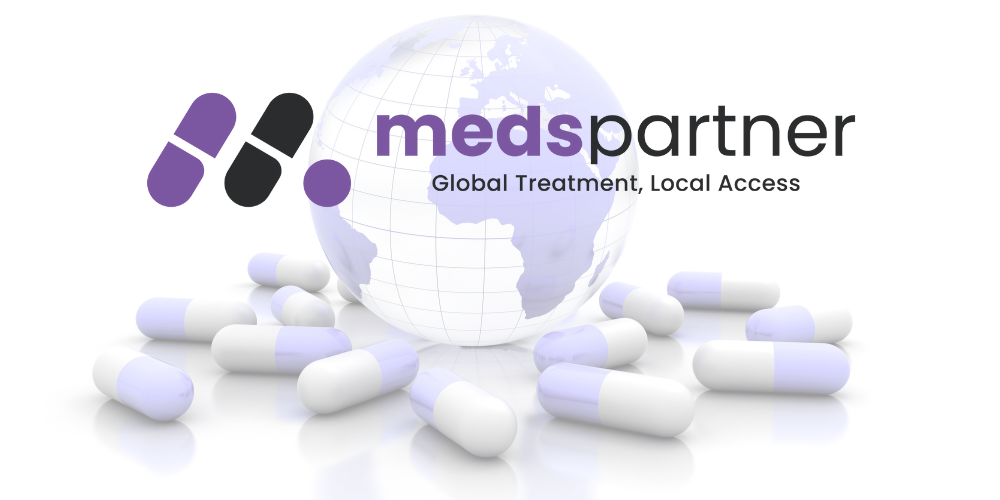Why Patients Globally Can't Access Life-Saving Medicines and How MedsPartner Helps Bridge the Gap

New York City, New York Aug 20, 2025 (Issuewire.com) - In the age of stunning medical advancements from immunotherapy breakthroughs to mRNA vaccines its easy to believe were living in a golden age of healthcare. And yet, for millions of patients spanning both LMICs and developed nations like the United States, United Kingdom, Australia, and New Zealand, life-saving medicines remain out of reach. Not because of a lack of innovation, but because of two stark impediments - affordability and availability.
These are not problems confined to the margins. They affect millions of ordinary people fighting extraordinary battles with cancer, rare diseases, diabetes, HIV, hepatitis, and more. They are a silent crisis, hidden behind pharmacy counters, insurance denials, and price tags that seem better suited to luxury lifestyle splurges than essential care.
At the heart of this crisis is an often-overlooked gap in healthcare systems - the delay or denial of access to affordable medication. And at the forefront of solving it is MedsPartner a patient-centric, globally trusted platform that connects individuals to affordable, high-quality generic medications from FDA or EMA-approved manufacturers.
The Cost of Survival - Real Stories of Patients Left Behind
Lets begin where this story too often begins in desperation.
Linda, a woman living with metastatic breast cancer in Ohio, faced staggering out-of-pocket expenses for her treatment with palbociclib (Ibrance®). Even with insurance, her monthly copay started at $2,219. When assistance ended, she was left to cover up to $4,000/month without Medicare. Her story highlights the harsh reality many cancer patients face - staying alive can come at an unaffordable price.
As ofJuly 2025, the Robert Gregory National Alkaptonuria Centre remains the only NHSrun service where AKU patients (16+ years) from England and Scotland can access nitisinone offlabel at no direct cost. Patients from Wales or Ireland must apply to local health boards for funding to attend. However, access outside this specialized centre, or for those unable to qualify, remains a challenge.
In Australia, hepatitisC treatment can cost up to AUD20,000 for patients without PBS coverage. Although curative therapies are available, access remains uneven. As highlighted in a 2024 report by ASHM, patients not covered under the Pharmaceutical Benefits Scheme, such as some hospital inpatients, may face the full financial burden. This creates serious equity concerns, especially for vulnerable populations who may be unable to afford treatment.
More On Toptelecast ::
- Elizabeth A. Len Wai Reminds Readers That God Has Already Given Us the Ultimate Parenting Guide — the Bible
- Living Active: Not to Compete, but to Live
- The Table Is the New Screen: The Mastermind Instinct Series That Refuses to Let Young Minds Sit Still
- Committed to India's Mental Health, Author Paras Panjwani Launches MindBharat as India's National Mental Health Mission
- Joel Park, II, MD, PhD: A Dedicated Leader in Hospital Medicine at Rhode Island Hospital
These stories are not hypothetical. They are happening every day, and not just in low- and middle-income countries. In the US, over 20% of patients have reported skipping medications due to cost. A 2024 study by the Rare Disease Diversity Coalition (RDDC) and the National Organization for Rare Disorders (NORD) found that even with insurance, 1 in 5 patients with rare diseases struggle to afford prescriptions. In July 2025, a PAN Foundation poll of 2,000 adults with rare or chronic conditions revealed that more than half had been denied coverage for costly medicines. And over 60% of those referred to alternative funding programs still went without treatment. In the UK, despite the NHS, patients face long waits, or outright refusal, when drugs are not backed by NICE or funded by local trusts. Australia and New Zealand, with their strong public systems, see thousands turn to special access schemes or personal importation just to get the care they need.
The Global Patchwork of Drug Access
To understand the scale of the problem, we must look at how drugs are priced and approved -
- United States - Theres no centralized price negotiation. Even with Medicare or private insurance, co-pays for specialty drugs can be catastrophic. Medicare doesnt cap out-of-pocket expenses for many cancer or rare disease treatments.
- United Kingdom - NICE governs drug coverage under the NHS. This can create postcode lotteries a drug may be available in one region, but not another, based on local budgetary decisions. There are also various restrictions regarding the type of disease, its severity, and how its progressing, which can further limit access even when a treatment is approved in principle.
- Australia - The Pharmaceutical Benefits Scheme (PBS) subsidizes essential medicines but only those listed. Many effective generics and newer drugs are excluded, requiring patients to pay full price or import legally via TGAs personal importation scheme.
- New Zealand - PHARMAC negotiates drug prices aggressively, but approval timelines are slow. Patients often wait years for treatments already standard elsewhere.
Each country tries to balance affordability with sustainability. The result, however, is often reduced patient access.
The Diseases That Cost Lives - and Fortunes
1. Cancer
Cancer care is increasingly personalized, and expensive. Breakthrough drugs like Ibrutinib, Palbociclib, Olaparib, or Trifluridine/Tipiracil offer hope, but at costs few can afford. Many high-quality generics are available in India and other countries, but patients often dont know how to access them safely and legally.
2. Rare Diseases
Access to treatment for rare diseases often becomes a race against time and money. Conditions like Pulmonary Arterial Hypertension (PAH) and Idiopathic Pulmonary Fibrosis (IPF) require targeted therapies such as macitentan, bosentan, or nintedanib, which are prohibitively expensive and not always covered by insurance.
For genetic disorders like Sickle Cell Disease, Wilsons Disease, and Alkaptonuria (AKU), life-prolonging drugs are often classified as orphan drugs, developed under special pathways but rarely made widely accessible due to their high costs. Patients may face long delays in approval, high out-of-pocket costs, or complete lack of availability in their country. Many are forced to import drugs like hydroxyurea, trientine, or nitisinone from international sources, often without institutional guidance or financial support.
Without timely treatment, the consequences can be irreversible organ damage, progressive disability, and premature death. For these patients, access is not just about quality of life, but survival itself.
3. Diabetes
Insulin was discovered in 1921. Yet today, millions still struggle to afford it. While biosimilars are accessible in India and other markets, patients in the US, UK, and Australia face ongoing price barriers.
Adding to this burden is the high cost of newer diabetes treatments like oral semaglutide. Despite its promise in managing type 2 diabetes and aiding weight loss, this drug remains out of reach for many due to its steep pricing, highlighting the urgent need for more affordable access to essential therapies worldwide.
4. HIV
Modern antiretroviral therapy (ART) has transformed HIV into a manageable chronic condition. Yet access remains unequal, even in wealthy nations. Gneric versions of Tenofovir, Efavirenz, Bictegravir and Dolutegravir are widely available in the Global South, but not always easily accessible in high-income countries.
5. Hepatitis B and C
Direct-acting antivirals (DAAs) have made hepatitis C curable, but launch prices exceeded $90,000 in the US. Now available for under $300 via generics in some parts of the world, these drugs remain out of reach for many due to lack of awareness or guidance.
MedsPartner - Making Affordable Treatment a Reality
MedsPartner is a legal, patient-centered platform helping people access high-quality generic medications ethically and affordably.
- Trusted sourcing - Only from US FDA or EMA-approved manufacturers.
- Legal importation - Compliant with over 40 countries personal importation laws, including the US, UK, Australia, and New Zealand.
- Global reach, local process - Navigation support for prescriptions, paperwork, and customs.
- Affordability - Prices often 7090% lower than local retail, with no compromise on quality.
Real Story - Angel's Fight to Save her Father
When Angel's father was diagnosed with Multiple Myeloma, her family was overwhelmed not just by the shock of the cancer diagnosis, but by what followed - a wall of financial and systemic obstacles.
His oncologist prescribed Lenalidomide, a standard maintenance therapy in multiple myeloma treatment. But under UK regulations, the National Health Service (NHS) didnt cover his specific case, leaving the family to face an out-of-pocket cost of £3,400 per month. When his condition advanced, his oncologist recommended Pomalidomide a follow-up therapy considered more potent for his stage of disease. This time, the price tag was even more daunting - £8,800 for a single treatment course.
Angel, a working mother of two, began searching for answers. She consulted support groups, read patient forums, and spoke to other caregivers eventually learning about named patient imports, a legal channel that allows UK residents to import unlicensed or non-available medications for personal use with the right paperwork and prescriptions.
Thats how she discovered MedsPartner. The team walked her through the importation process explaining the documents required, validating the prescription and explaining the manufacturer quality standards. MedsPartner sourced generic versions of both Lenalidomide and Pomalidomide from an FDA and EMA approved manufacturer in India, and helped manage customs and logistics.
What would have cost tens of thousands of pounds now cost a fraction and was delivered to their doorstep legally, safely, and promptly.
More importantly, Angels father was able to continue treatment without delay. Over the next 18 months, he responded well to therapy. His quality of life improved. He spent time with his grandchildren. The family no longer had to choose between medicine and mortgage payments.
Angels story is far from unique, but its a powerful reminder of whats possible when patients are informed, supported, and empowered to take action.
Beyond Commerce - Building a Patient Access Movement
MedsPartner is more than a platform its part of a growing medicine access movement -
- Educational guides demystify importation laws and patient rights.
- Transparent documentation shows batch origin and manufacturer.
- Real patient stories help others find clarity and courage.
A Vision for a Fairer Healthcare Ecosystem
No one across different countries should be denied treatment because of financial limitations. If there is a way to save lives, the systems should be designed to make it available easily.
As awareness of personal importation grows and trust in generics strengthens, platforms like MedsPartner could become essential tools, not alternatives.
Imagine a future where -
- Doctors routinely guide patients to affordable legal access options.
- Every patient group knows their importation rights.
- No family has to choose between the right treatment and their financial future.
- Personal importation is accepted as an obvious immediate solution when systems, due to their own limitations, leave some patients vulnerable.
That future is being built one patient at a time.
Conclusion - A Call to Action and Equity
The global medication access crisis has been talked about on various platforms regularly. But it is time that we take Actions. Actions that are morally necessary, Actions that offer immediate relief to patients and families who cannot wait for negotiations for their medicine to be covered under insurance or for the launch of an affordable generic in their home country.
Platforms like MedsPartner are contributing by raising awareness about alternative solutions. At the same time, it is important that all of us who care and want to see a different world, inform patients who may be seeking hope.
If you or someone you know is struggling with the cost of essential medications for cancer, rare disease, HIV, hepatitis, or chronic illness it is not the end of the road. And there is a safe, legal, affordable path forward.
That path begins with knowledge and leads to global health equity.


Source :MedsPartner
This article was originally published by IssueWire. Read the original article here.